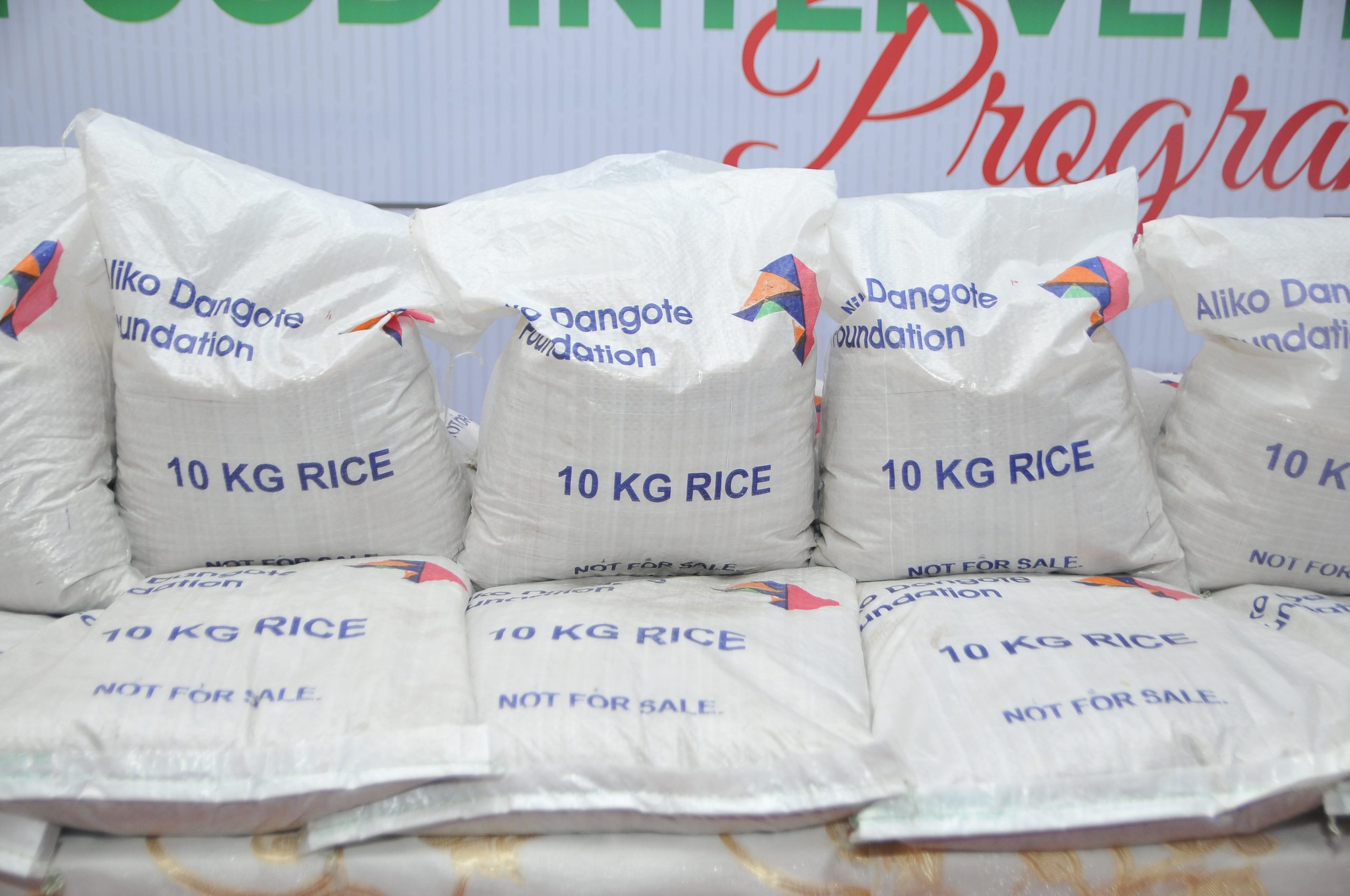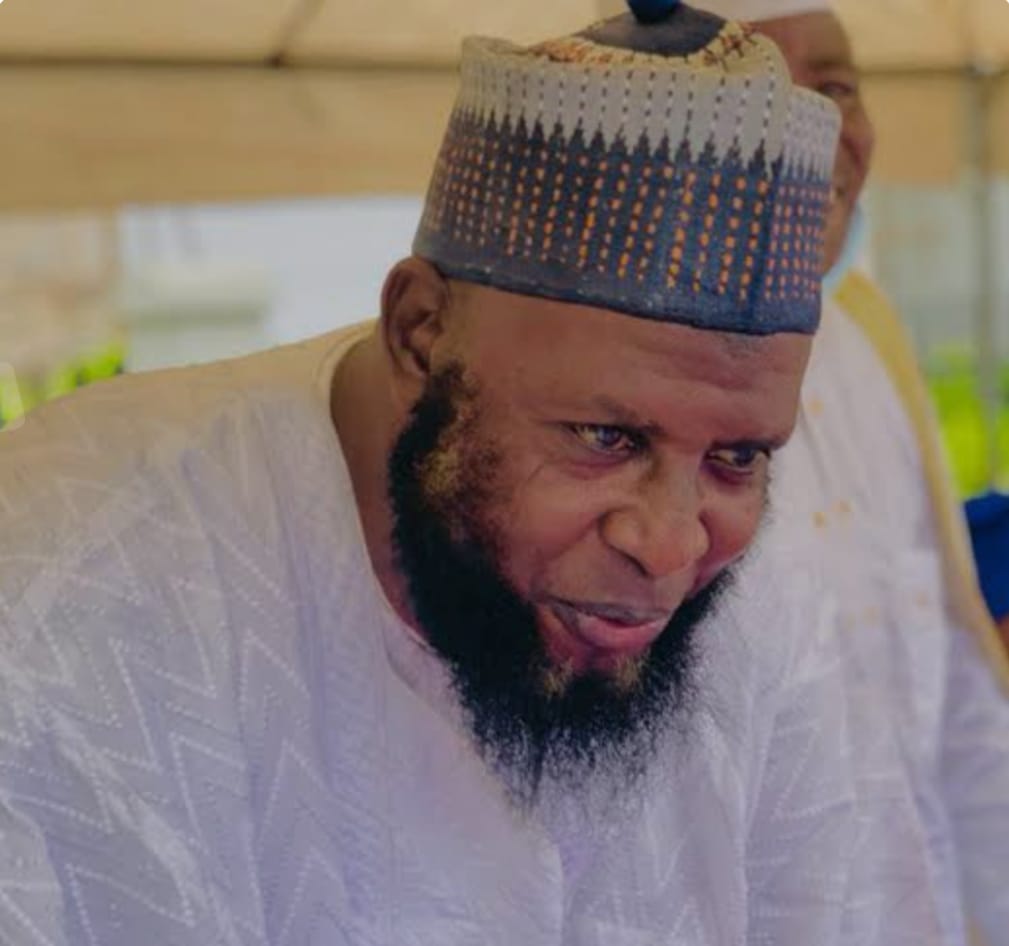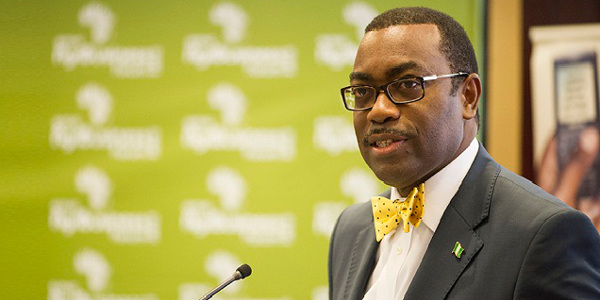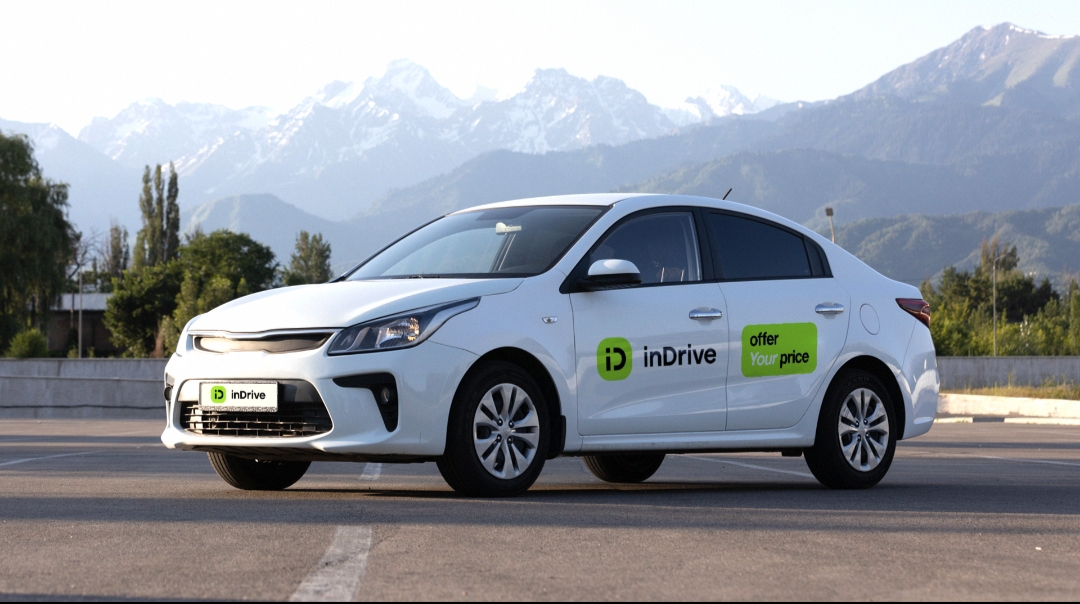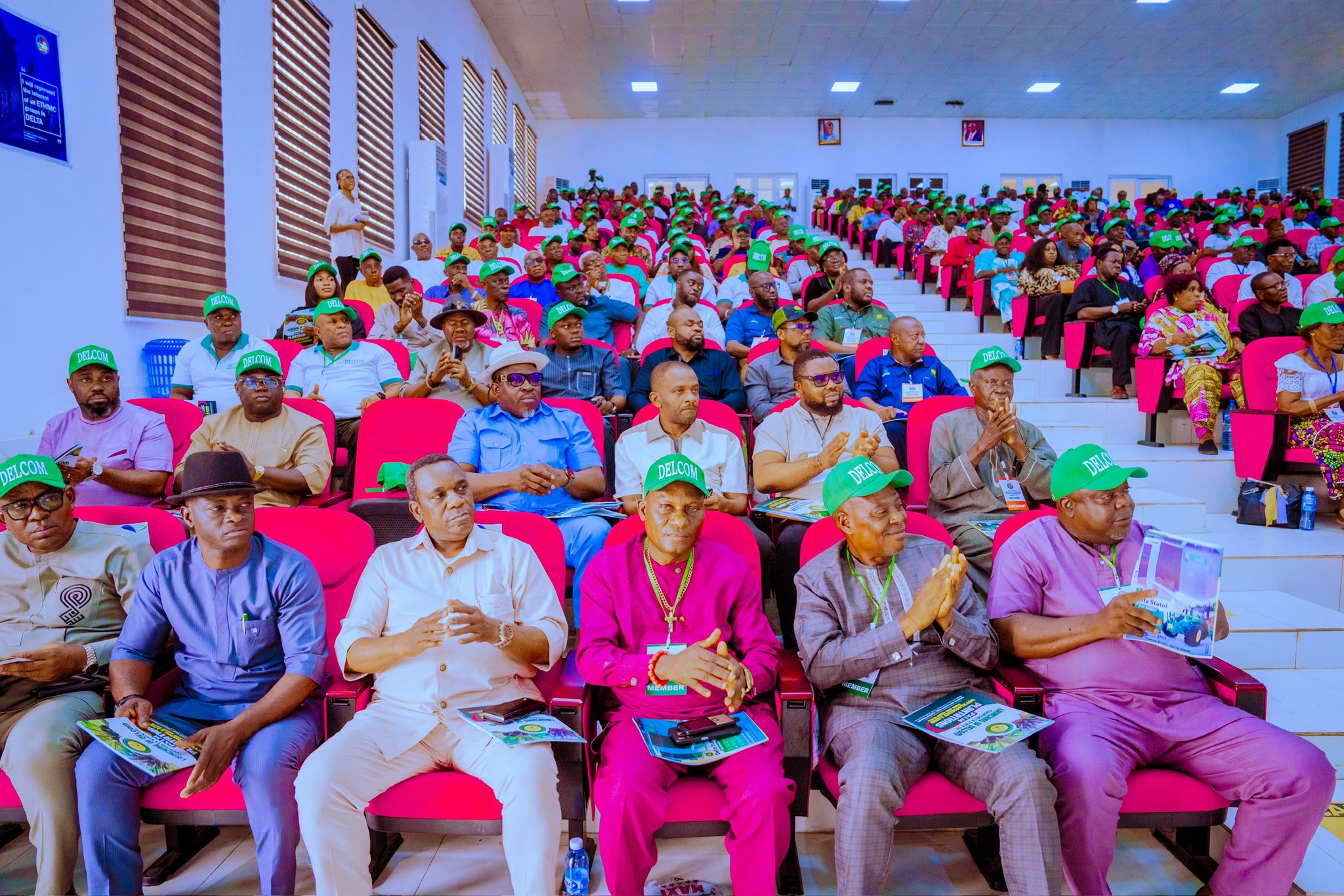
From oil and Gas to oil palm produce, 3,080 farmers gathered together in Asaba, Delta State to launch Africa’s biggest Palm Produce with foreign investment worth $900m. ADEWALE ADEOYE who was at the kickoff ceremony reports
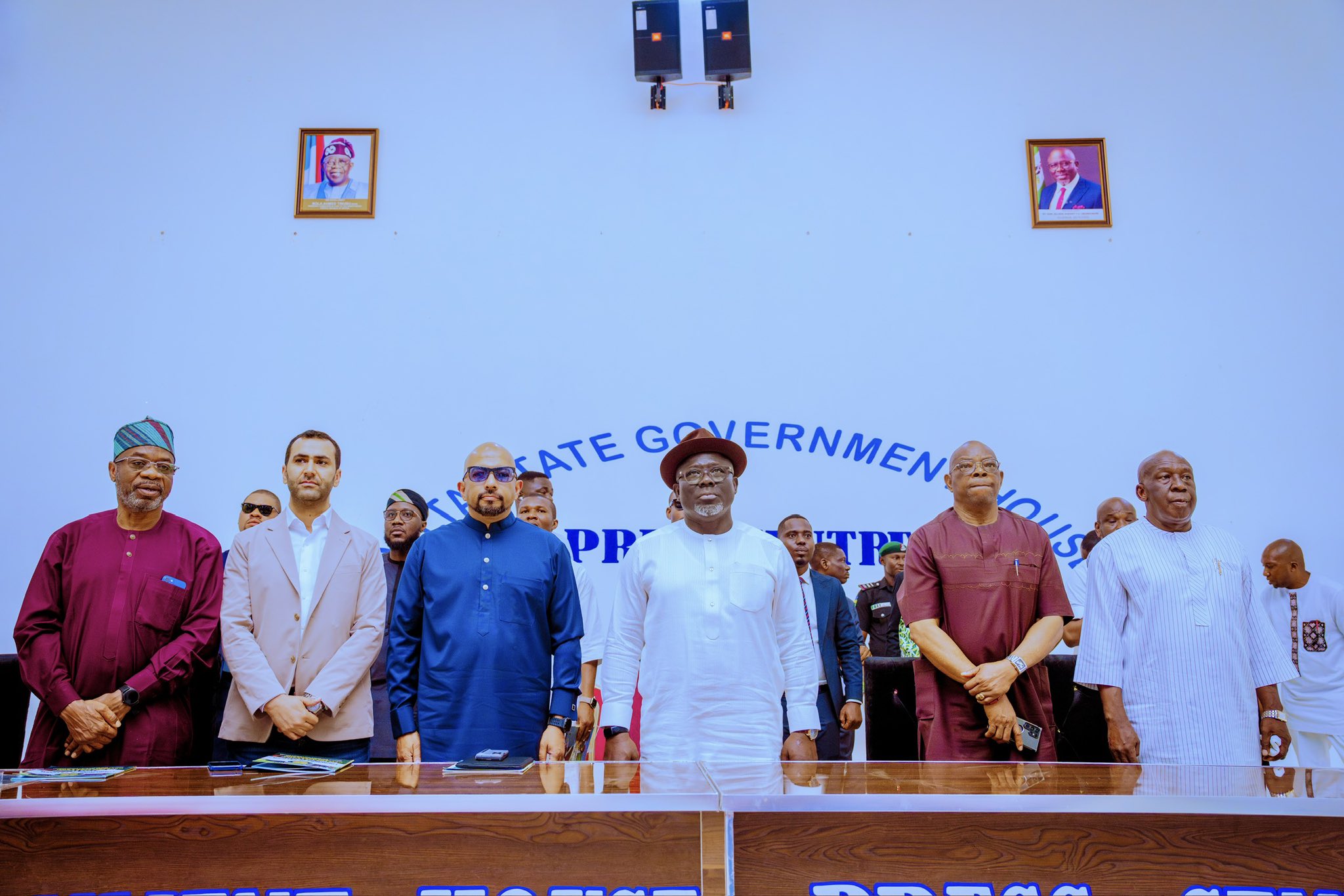
Ejiro Jacob was 60 last Wednesday. We met at a small building his father left for him, located in the creeks of Warri. It was before sun rise. Half naked, he watched his wife and children as they returned form an all-night fishing expedition displaying their harvest on a rusty tray.
“For more than three decades, this is all we have lived on living in the creeks with a family of six”, he said, gesticulating with his two hands. But his story and that of thousands of others changed last week in what came like a birthday gift that is set to transform his entire life.
“Things now look good. I’m happy about what is happening. It is like a birthday present to me at 60,” with a large grin, he said.
Jacob is one of those poor Delta farmers whose hope for a greener future has suddenly been strengthened by the launching last week of what has been described as the largest palm produce farm in Africa.
With the community driven project, each participant will benefit N27million yearly after the first seven years.
Mustafa Alfarra, who came from Malaysia told our correspondent that the project is the largest cooperative in Africa.
“We are ready to put Delta State in the global map beginning from Asaba today,” he enthused.
Jacob and ten others were on their way to Asaba, the Delta State capital for an historic agro-event when the reporter visited.
An estimated 5000 farmers gathered in the State capital in Asaba on Wednesday. Earlier, the reporter had been on a testy cruise across the ocean and channels traversing many communities, some of which are located on small Islands.
Haggling women were sighted paddling woden canoes, some had their children strapped in their back. Some of the infants barely months-old amidst torrents of rainfall, sea splashes and undulating waves; in many instances, fast moving boats flashed through the sea as if in a race competition. But on that Wednesday, all roads led to Asaba.
Visitors and experts came from Japan, Indonesia, Hong Kong and Malaysia, the second largest producer of palm oil in the world.
“With 500 hectares of palm oil farmland, I will soon be one of the richest in my community in few years,” he said as he boarded the bus on his way to the state capital.
Asaba was the host city. For one thing, the reporter had not been to the heart of the city for a very long time. Visiting after many decades, the city looked a bit smarter: dots of high profile buildings welcome visitors, viewed from the window seat of a medium aircraft that landed without hitches. The dots of houses became bigger as the plane descended towards the tarmac. The mission was to witness a global economic event that observers described as Africa’s biggest palm produce farm.
As part of the landmark, Delta State played host to important dignitaries including the First Lady, Mrs Remi Tinubu, whose maternal ancestors found deep roots in Delta.
She did not leave until Wednesday when women gathered at the airport to bid her farewell after the historic visit.
“One of the events that thrilled the First lady was the launching of Africa’s biggest oil palm farms”, a top government official told our correspondent describing the Wednesday event as the “most significant economic story in Africa this year.”
Experts say Delta currently produces a very high percentage of oil and gas, a source of financial boost for some 5.7million people that live in the over 200 communities, however, many observers think with the launching of the biggest oil palm produce initiative last week by over 3,000 farmers, might change the economic dynamics of the state.
“For the next months, this is the big story on the lips of everyone in Delta State,” one of the motivators, Joseph Ebiri said.
Isaac Onomedia, a farmer, stocky Warri boy, with the physique of a professional wrestler is one of the pillars of the oil palm revolution launched.
He told our correspondent: “We are changing the face of palm production in Africa,” drawing his cane chair closer as we settled for local delicacy made from palm nuts, shrimps and cat fish.
“Over 3,000 famers came together to transform agriculture in Delta State. The beauty is that every participating community is a stakeholder. We are all shareholders. No cheating”, he explained.
Like many others, Isaac was brought up in the deepest tributaries of the Niger Delta with knowledge of the snaky creeks where life is as fresh as the lurch green leaves, with protein sources come in natural form. But due to water pollution, fishing has become less lucrative. He is one of the thousands of farmers that will benefit from the oil palm initiative which is set to transform communities from poverty to wealth.
The Delta State Commercial Oil Palm Plantation Growers Cooperative Society began in 2019. Participating farmers are the sole owners of the DELCOM Oil palm plantations Ltd.
The Chairman is Williams Makide while the Treasurer is Momah Maxwell with Mr Oluwatobi Ogunbayo as Tehnical and Financial Adviser. The project hopes to lift 2 million people from poverty, representing close to half of the entire population of Delta State.
The state Governor, Sheriff F.O Oborevwori said the project will produce 15,000 millionaires, and 1,080 billionaires in the next seven years.
Already, 100,000 hectares have been secured, with 168 corporate members owning between 100 to 5,168 hectares and 3, 080 Small Holder Farmers each with five hectares each.
Oborevwori said in few years, Nigeria will have great story to tell about palm oil production in Delta.
In the short term, 288,700 jobs will be created while in the long term, 1 million jobs is available for indigenous peoples.
Already, $900 million foreign private equity has been secured with additional 150 oil mills projects.
The Secretary General of DELCOM, Chief Felix Okonti told our correspondent that the beauty of the project is that it is community driven. Each community is a stakeholder, the land is no going to be taken away from the communities, while they would continue to enjoy the benefits of oil palm production changing their economic outlook tremendously.
He said the group must ‘champion consensus, humility and transparent leadership.’
One of the interesting aspects of the project is that 10 percent of the profit goes to the communities that own the land making them real stake holders. Yet, linked to the project are six strategic hubs some of which included organic fertilizer factories, machineries to be used in the mechanized farming and also housing component with flats built in the farm clusters turning the plantation to homes while two mills will be established in the first two years of the project expected to attract N1 billion in the first year of the project.
Oborevwori said the government is building roads to link up beneficiary communities while healthcare facilities are being provided.
He said under the arrangement, communities are being empowered, the land not taken away from them while there is sustained ownership with land owners involved from conception and implementation of projects.
Group Managing Director, Agrinexus Group of Companies, Dr Shermal Perera, who came from Hong Kong describes Delta farmers cooperative as a lucky to have launched the project.
The journey began in 2019 during the COVID-19 scare. The Central Bank of Nigeria, (CBN) at the time had initiated a palm oil support, which in content was revolutionary.
The CBN was to offer a total of N100 billion to Delta State palm oil farmers through clusters. An initial N45 billion was to be released why the second N55 billion was to be injected as the project progressed. However, bureaucratic bottlenecks struck, stunting the project.
Undaunted, the farmers launched a cooperative then searched for global investors which saw business consortium from Malaysia, Hong Kong and the United States came into the deal.
Apart from that, the company from Malaysia has invested in the technological sector with a policy that creates local industry for production of agro equipment to be assembled or manufactured in Nigeria.
Already, locals are excited that a new lease of life has come their way.
“We didn’t expect this. Wealth has found its way into our doorsteps”, Fred Abigor said, beating his chest that his investment and financial livelihood for the next two decades are guaranteed.
“We are excited about what is going on. This is the best way to invest in humanity. Our land has been turned into fortunes. We don’t need to migrate to Lagos or Abuja. Wealth is right here on our doorstep” said Anthony Obua who is confident the dividends of his investment is enough to take care of two generations.
When the State Governor, Sheriff Oborevwori, walked in briskly into the gathering of the farmers on that Wednesday, he praised them for their resilience.
He said he has joined the team of farmers hoping to retire in his old age into a palm fruit planation.
“I have joined the association. We are now all farmers,” he told the crowd pointing out state officials who have also taken up the palm fruit farming.
Indonesia is the largest palm oil producer in the world with 46.5 million metric tones, followed by Malaysia with 19.2 million, Thailand and then Colombia.
Indonesia rakes in $31 billion in one year while in the year 2022, Malaysia realized $36 billion in one year.
Alfarra from Malaysia said his team is determined to reproduce the Malaysia miracle in Delta State in few years.
The world waits to see the miracle happen. Interestingly, palm fruits was introduced to Malaysia from West Africa by the British in 1870s as an ornamental plant. Today, Nigeria is learning from the Asian country.

